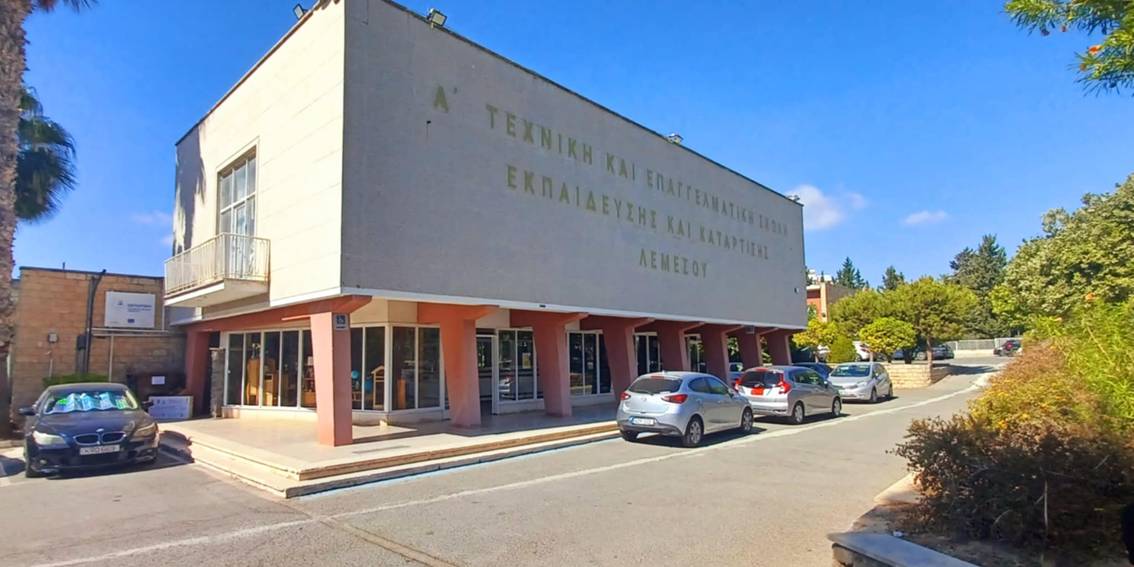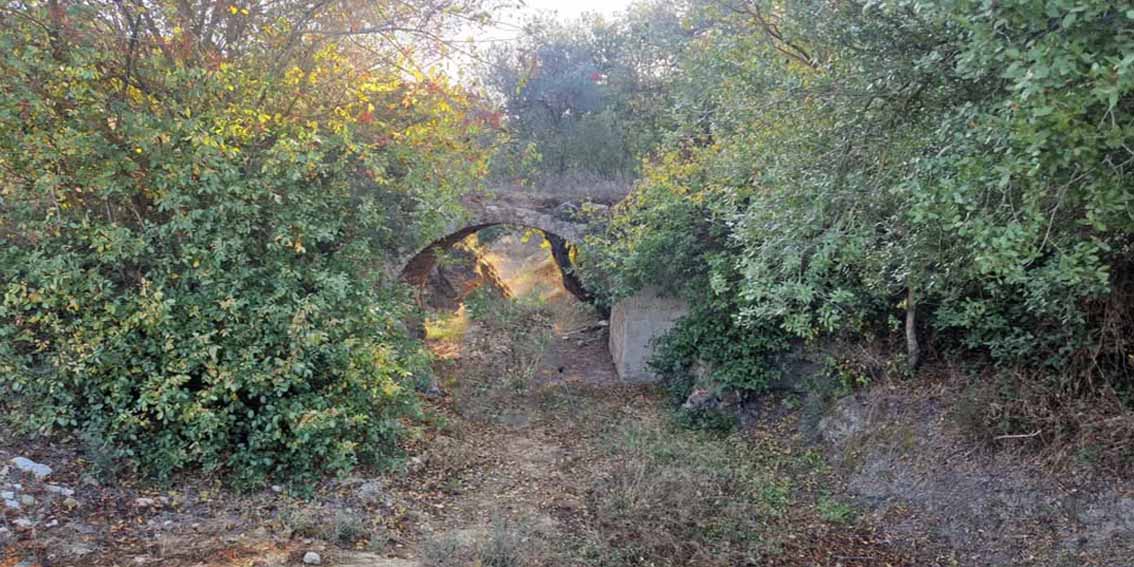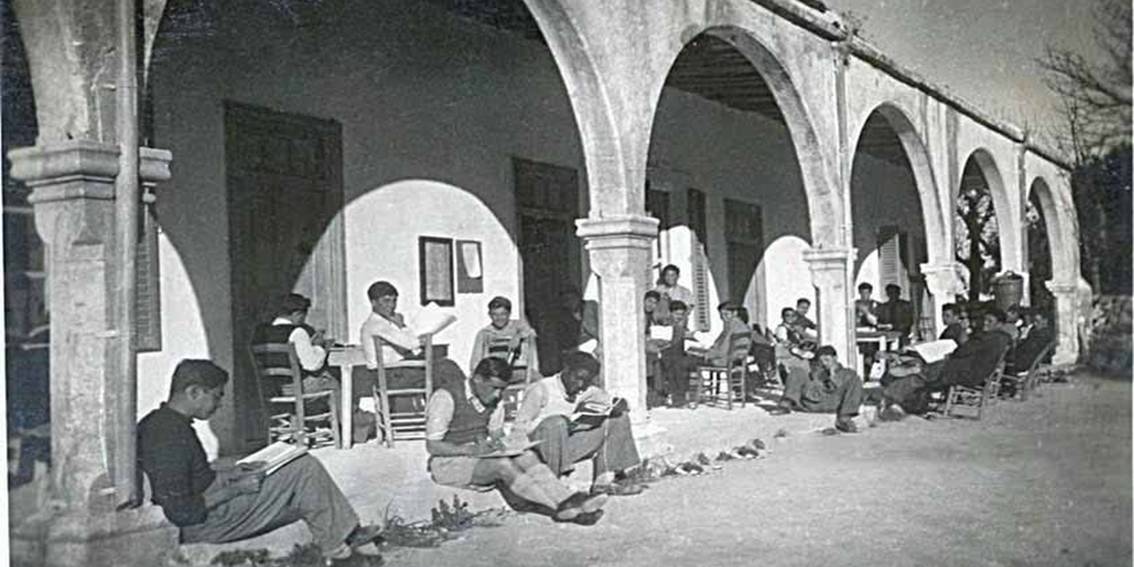The Technical School of Limassol
The Technical School Limassol (Τεχνική Σχολή Λεμεσού) played a significant role in shaping the educational and industrial landscape of Cyprus. Technical School of Limassol was founded in the mid-20th century. The school has grown and evolved in response to the social, economic, and industrial needs of Cyprus as a whole. Its history is a reflection of the broader transformations that Cyprus has undergone, from British colonial rule through independence.
Early Beginnings and Colonial Era
The Technical School of Limassol traces its roots back to the British colonial period, when Cyprus was under British administration. During this time, Cyprus education was primarily focused on general academic studies, with limited options for technical or vocational training.
At that time there was need for skilled labour in the construction. The School contributed on mechanical, and electrical sectors, particularly in urban centres like Limassol. This led to the recognition that specialized technical education was essential.

In response to this need, the first steps toward establishing technical education were taken in the early 1950s. The British colonial government, in collaboration with local authorities, began to promote the idea of vocational training schools. There aim was to equip young Cypriots with practical skills that would meet the demands of the local labor market. This initiative was also in line with broader efforts across the British Empire to establish technical schools in the colonies.
The Technical School of Limassol was formally established in 1957. Its primary focus was to provide vocational training in fields such as carpentry, metalworking, and electrical engineering. The school operated with limited resources and facilities, but its foundation marked an important step in the modernization of education. Students were trained not only in practical skills but also in theoretical knowledge. The combination of both would enable them to adapt to the changing technological landscape of post-World War II era.
Post-Independence Development
Cyprus gained independence from British rule in 1960. The newly established Republic of Cyprus placed a strong emphasis on education as a means of national development.

The government’s vision was to create an educational system that would support the country’s economic growth.
The Technical School of Limassol benefited from this focus, receiving increased funding and support. The 1960s and 1970s were a period of significant growth for the school. New departments were added to meet the expanding needs of the Cypriot economy. For example, programs in automotive mechanics, electronics, and civil engineering were introduced. The school expanded its facilities, with the construction of new workshops and classrooms to accommodate the growing number of students.
Limassol itself was becoming a major commercial and industrial hub during this period. The port of Limassol was one of the busiest in the Mediterranean, and the city’s industries were expanding rapidly. The Technical School of Limassol played a key role in providing the skilled workforce necessary for this growth. Many of the school’s graduates went on to work in local industries. Others found employment abroad, particularly in the Middle East and Europe, where Cypriot technical expertise was in high demand.

Challenges and Growth in the Late 20th Century
The 1970s brought significant challenges to Cyprus. The wake of the 1974 Turkish invasion, which led to the division of the island. Despite the political and economic turmoil, the Technical School of Limassol continued to operate and adapt to the changing circumstances. The school’s role became more critical as Cyprus sought to rebuild and modernize its infrastructure in the aftermath of the conflict.
During the 1980s and 1990s, the Technical School of Limassol underwent further modernization. Advances in technology and the emergence of new industries, like information technology and telecommunications, necessitated updates to the school’s curriculum. New courses were introduced in computer science, telecommunications, and automation, reflecting the growing importance of these fields in global economy. The school placed a stronger emphasis on entrepreneurship, encouraging students to think creatively, how to contribute to the country’s development.

The European Union Era and Modernization
Cyprus’ accession to European Union in 2004 marked a new chapter in the history of the Technical School of Limassol. Cyprus had access to funding opportunities and educational programs that aimed to harmonize the island’s educational system with European standards. The Technical School of Limassol benefited from these initiatives. The school participating in EU-funded projects that aimed to improve vocational education and training (VET).
The school’s curriculum was updated to European standards, and new partnerships were formed with technical schools and institutions across Europe. This enabled the exchange of knowledge, best practices, and innovation in technical education. Students at the Technical School of Limassol had the opportunity to participate in exchange programs, internships, and collaborative projects.
In the 21st century, the Technical School of Limassol continues to play a vital role in the Cyprus educational system. The school has embraced modern technologies, incorporating digital tools, renewable energy technologies, and sustainable practices into its curriculum. Additionally, it fosters a culture of lifelong learning, recognizing that the skills required in the modern workplace are constantly evolving.
The Role of the Technical School of Limassol in Supporting Cyprus Industry
Technical School of Limassol has a long and proud history of contributing to the economic and social development of Cyprus. From its early stage the school has continually adapted to meet the needs of its students and the broader economy. Today it stands as a testament to the importance of technical education in fostering innovation, growth, and resilience. Its graduates, with theoretical knowledge and practical skills, are prepared to contribute to Limassol’s development and beyond. The Technical School of Limassol has played a pivotal role in providing skilled labour to many

industries in Cyprus.
Two of the bigger institutions like KEO Beer Company and Vasiliko Power Station took on board many skilled workers. These two major entities are crucial to Cyprus’ economy and infrastructure, and their growth and operations have been significantly supported by the technical expertise provided by graduates from the Technical School.

1. The Role of the Technical School of Limassol in Supporting KEO Beer Company
KEO Beer Company is one of Cyprus’ most well-known and established companies, having been founded in 1927. The company, based in Limassol, is a major producer of beverages, including its signature beer, KEO, as well as wines, spirits, and other products. The success and growth of KEO have required a highly skilled workforce to maintain and operate its production facilities, distribution networks, and technical operations.
Key Contributions of the Technical School to KEO:
Mechanical and Electrical Engineering Expertise: The production of beer and other beverages at KEO’s plant involves complex mechanical systems, bottling machinery, and automated production lines. The mechanical engineers and technicians trained at the Technical School of Limassol have been instrumental in maintaining these systems, ensuring the smooth operation of the production process. Similarly, electrical engineers trained at the school play a key role in maintaining the electrical systems that power KEO’s production facilities, ensuring energy efficiency and minimizing downtime.
Quality Control and Instrumentation: Brewing requires precision and quality control at various stages, including fermentation, bottling, and storage. Graduates from the electronics and instrumentation programs at the Technical School have provided essential skills in monitoring and controlling the sensitive parameters involved in the brewing process, such as temperature, pressure, and chemical composition. Their expertise ensures that KEO consistently produces high-quality products.
Maintenance and Repair: The beer production process at KEO relies on heavy-duty equipment that requires regular maintenance and occasional repair. Technicians from the Technical School, trained in industrial machinery repair, welding, and maintenance engineering, are crucial in


ensuring that the plant’s operations run smoothly and with minimal interruptions.This ability to swiftly repair and maintain equipment is essential for a company that operates continuously to meet market demand.
Automation and Innovation: As KEO has modernized its production facilities over the years; it has increasingly relied on automation technologies. Graduates from the Technical School of Limassol who have studied automation systems and robotics have contributed to this transition, helping to implement and maintain automated production lines that increase efficiency and reduce labour costs.
KEO Beer Company has benefited greatly from the pool of skilled workers produced by the Technical School of Limassol, allowing the company to continue its tradition of quality while adopting modern technologies that improve efficiency and scalability.
2. The Role of the Technical School of Limassol in Supporting Vasiliko Power Station
Vasiliko Power Station is the largest power generation plant in Cyprus, located near the village of Vasilikos, south of Limassol. The power station plays a critical role in providing electricity to the island, and its continued operation and expansion have been directly supported by technical professionals trained at the Technical School of Limassol.

Key Contributions of the Technical School to Vasiliko Power Station:
Electrical Engineering and Power Systems
Power generation requires highly specialized knowledge in electrical systems and power generation technology. The Technical School of Limassol has provided many electrical engineers and technicians at Vasiliko Power Station, ensuring that the complex systems responsible for generating and distributing electricity are maintained and operated efficiently. These graduates handle everything from the maintenance of power turbines to the operation of the plant’s grid systems.
Mechanical Maintenance and Operation
The operation of Vasiliko Power Station’s massive power-generating units, which include turbines, generators, and transformers, requires a steady supply of skilled mechanical engineers and technicians. Graduates from the mechanical engineering and industrial maintenance programs at the Technical School of Limassol have filled these roles, performing essential maintenance, repairs, and operational duties to keep the power plant functioning smoothly.
Automation and Control Systems
Modern power plants, like Vasiliko, increasingly rely on automation to optimize efficiency, monitor performance, and minimize human error. The Technical School of Limassol offers training in automation systems, enabling graduates to manage and maintain the automated control systems that regulate power output, monitor grid performance, and ensure the station meets its safety and efficiency standards.
Environmental Engineering and Renewable Energy
In recent years, there has been a growing emphasis on reducing the environmental impact of power generation, even in traditional power stations like Vasiliko. The Technical School has introduced programs focusing on environmental engineering and renewable energy, producing graduates who are well-versed in pollution control technologies and sustainability practices. These graduates are essential in helping Vasiliko Power Station comply with environmental regulations, reducing emissions, and exploring options for integrating renewable energy sources.
Industrial Safety and Risk Management
Power generation is a high-risk industry, where safety is a top priority. The Technical School’s training in industrial safety protocols, risk management, and occupational health is critical in preparing workers for roles at Vasiliko Power Station. Graduates are trained to adhere to strict safety guidelines, ensuring that both the workforce and the environment are protected during the plant’s operations.
Summary of the Technical School’s Impact
In both KEO Beer Company and Vasiliko Power Station, the Technical School of Limassol has played a key role in providing essential skilled labour that supports the efficient operation and growth of these two major institutions.
For KEO Beer Company, the Technical School has provided expertise in mechanical and electrical engineering, quality control, automation, and equipment maintenance, enabling the company to remain competitive in the beverage industry.
For Vasiliko Power Station, the school has supplied electrical and mechanical engineers, automation technicians, environmental engineers, and safety specialists who ensure the reliable production of electricity for Cyprus while also helping the station move towards more sustainable practices.
The Technical School of Limassol, by producing a highly skilled workforce, has directly contributed to the success of these major industries in Cyprus, ensuring their ability to modernize, maintain efficiency, and continue to be leaders in their respective fields.






